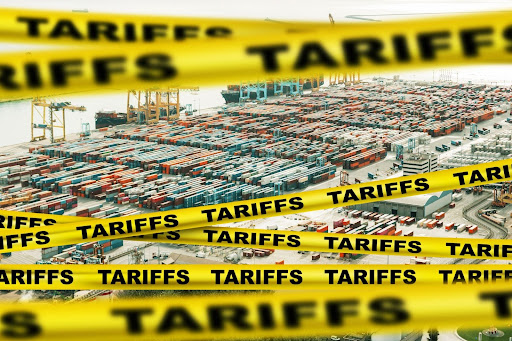 As 2022 quickly approaches, many are wondering what the immediate future holds for the freight market. It’s especially hard to predict the future right now, with uncertain economic conditions, the Covid-19 pandemic is still a factor and supply chain issues are affecting the nation. However, it’s possible to make some educated forecasts based on current data and conditions.
As 2022 quickly approaches, many are wondering what the immediate future holds for the freight market. It’s especially hard to predict the future right now, with uncertain economic conditions, the Covid-19 pandemic is still a factor and supply chain issues are affecting the nation. However, it’s possible to make some educated forecasts based on current data and conditions.
Issues Impacting the Trucking and Freight Industries
As we head into the holiday season and the New Year, several issues are creating significant challenges for freight and trucking companies.
Supply Shortages
The widely-publicized supply chain issues are likely to continue into the foreseeable future. This affects raw materials, edibles, and a wide range of consumer products. There are also shortages of trucks and parts for trucks, which can affect your ability to operate.
Rising Prices
Covid and supply chain problems are causing price increases for many items. Spot rates are consequently rising as well, which can significantly increase your operating costs.
Labor Shortages
Another problem impacting many areas of the economy, including freight and transportation companies, is a labor shortage. It’s now difficult to staff positions such as drivers and warehouse workers. Driver shortages, of course, are a more long-standing issue but the current crisis is making it even worse in many areas.
Limited Capacity
Issues related to labor and supply shortages have reduced capacity to handle, transport and warehouse goods.
Tips for the Holiday Season and 2022
Despite the many challenges, the freight market forecast isn’t all grim. According to FTR Transportation Intelligence, freight rates and overall economic growth are likely to remain stable into 2022. They also affirm that most carriers are achieving results that are comparable to pre-pandemic years. Trucking companies can take certain steps to overcome challenges and have a prosperous holiday season and start the next year off strongly.
- Plan ahead. With possible supply shortages and shipment delays, you need to plan as far ahead as possible. You should expect delays and plan accordingly.
- Only work with reliable brokers. If possible, look for dedicated lanes that provide a schedule and income you can count on. Be sure to work only with reputable, high-rated brokers. This provides you with security and makes it less likely that you’ll be scammed or have trouble collecting payments.
- Save money on fuel. Fuel shortages and price fluctuations may continue into next year and beyond. Fueling is a big expense and one that you can, to some extent, manage. Identify the most economical fueling options on your routes. Fuel cards are another way to save on fuel costs. These programs also provide you with a line of credit for filling up. Riviera Finance offers a strong fuel card program.
- Manage your company finances. You may find that many clients are paying invoices late. It’s important to keep track of your invoices and to collect on overdue accounts. One way to improve your cash flow in these uncertain times is with invoice factoring.
How Transportation Factoring Helps Your Cash Flow
Factoring invoices is one of the best ways to boost your cash flow even if clients don’t always pay you on time.
- Collect payment on invoices right away to improve cash flow.
- Reduce risk of bad-debt with non-recourse factoring.
- Let the factoring company process your billing and collect on your accounts receivable Factoring is easier to arrange than other types of financing such as bank loans. The application process is fast and factoring companies check your clients’ credit rather than yours.
- Make your business more secure. Haul more loads, easily make payroll, invest in new trucks, equipment, staff or anything you need.
To learn more about how transportation factoring can help your business, contact Riviera Finance today.






